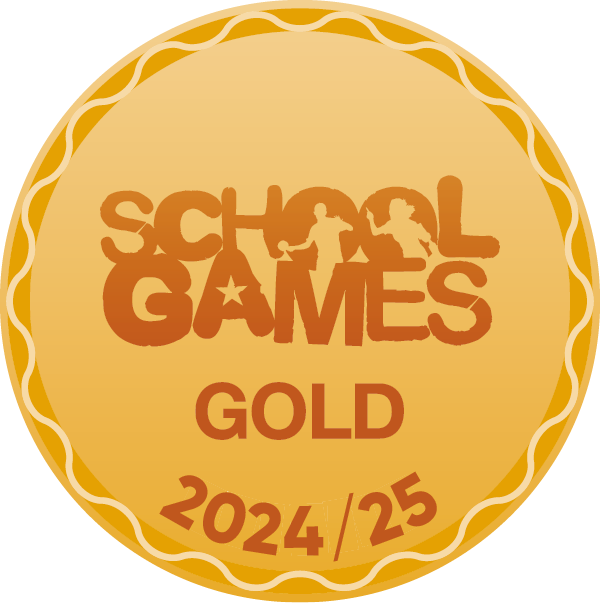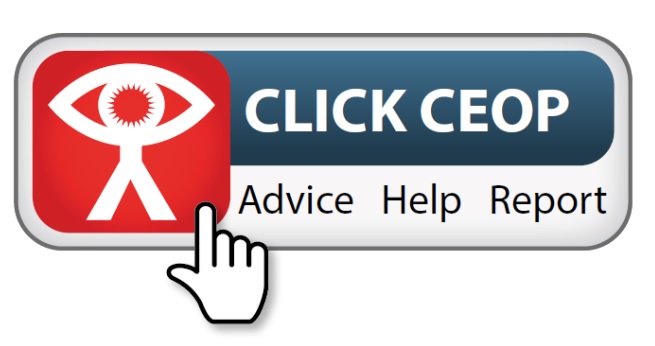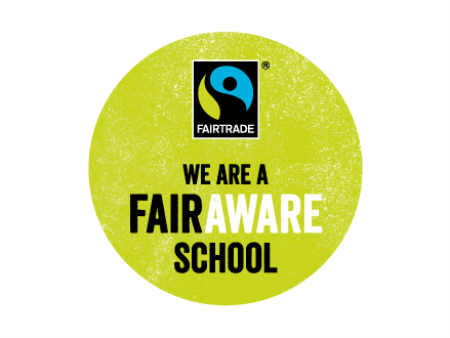Religious Education
Religious education at St Peter’s explores how individuals and communities make meaning and sense of their lives through the major religions of the world and world views.
It enables pupils to know about, understand and respond to the important and ultimate questions of life. Religious education is taught in such a way that it inspires pupils to explore, develop and affirm their own faith if they choose and to have respect for the faith, beliefs and values of others. Parents have the right to withdraw their child from all or part of RE. See the RE policy for more details. RE is enriched with activities such as the option to take part in NATRE's Spirited Arts competition, Trips and visitors and by taking a role on Worship Council.
Intent
 As a Church of England school the Governing Body have adopted the Oxfordshire Agreed Syllabus 2023-28. It meets the requirements in the Education Acts of 1996, 1998 and 2002. These are that an agreed syllabus must reflect that the religious traditions in Great Britain are in the main Christian, while taking account of the teaching and practices of the other principal religions represented in Great Britain. A parent may request the right to withdraw their child from part of all of RE.
As a Church of England school the Governing Body have adopted the Oxfordshire Agreed Syllabus 2023-28. It meets the requirements in the Education Acts of 1996, 1998 and 2002. These are that an agreed syllabus must reflect that the religious traditions in Great Britain are in the main Christian, while taking account of the teaching and practices of the other principal religions represented in Great Britain. A parent may request the right to withdraw their child from part of all of RE.
As a Church of England School, our RE reflects the Church of England Statement for Entitlement which states “Religious education in a Church school should enable every child to flourish and to live life in all its fullness. (John 10:10).' linking nicely with our own school vision. 'It will help educate for dignity and respect encouraging all to live well together” which echoes our trust vision of common goals for the common good.
We have worked alongside our RE advisor to tailor the locally agreed syllabus to our specific context, using the scheme 'Understanding Christianity' to support resourcing of lessons. St Peter's RE curriculum is both academically rigorous and personally significant.
It aims for:
- pupils to learn about religions and beliefs which have influenced the lives of millions of people and heavily influenced the development of different human cultures.
- For pupils to recognise and develop their own perspective from their increasingly academic and creative exploration of religions and other worldviews.
In Cygnus, pupils will explore
i) themes that span religions such as celebrations, family traditions, foods, symbols, buildings
ii) Key Christian festivals; Harvest, Christmas, Easter
iii) Key Christian figures; Jesus, St Peter, Pope, King Charles
Tucana, pupils will explore:
i) Christianity in depth,
ii) Judaism in depth
iii) with reference to one Dharmic tradition and non-religious perspectives
In Phoenix, pupils will explore:
i. Christianity in depth,
ii. Islam in depth
iii. Hinduism in depth
iv. with reference to other religions and perspectives, as appropriate.
In Pegasus, pupils will explore:
i. Christianity in depth,
ii. Islam in depth
iii. Hinduism in depth
iv. with reference to other religions and perspectives, as appropriate including Sikhism
v. Humanism,
St Peter's Curriculum Overview
Implementation
Pupils apply academic skills such as analysis and critical and creative thinking, approaching the study of religion with different disciplines as they mature.
When teaching RE at St Peter's, we aim to allow pupils time and space to explore big ideas and concepts and their own responses to it. We strive to ensure meaningful and contextual learning, with concepts and big ideas building over time and being revisited often to develop deep learning or core knowledge. Thoughts and ideas are largely expressed through artwork, drama, spoken activities and real life projects. R.E is taught using videos, artefacts, visitors and experiences. This also allows for the development of 'ways of knowing' in our RE curriculum. Learning is recorded in individual RE books or class floor books.
Teachers assess R.E through formative activities which are built into the learning, such as quizzes, questions, observations and reflective tasks, such as looking at previous work. These formative assessments inform summative assessments on a RAG rated sheet for each unit.
Parents have the right to withdraw their child from part or all of R.E. Please speak to the headteacher to discuss this.
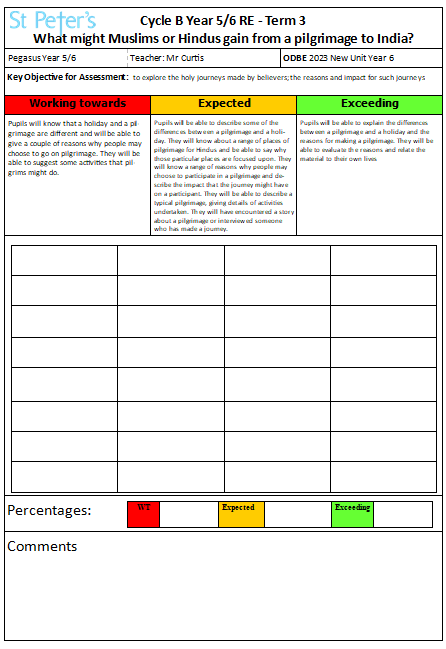 |
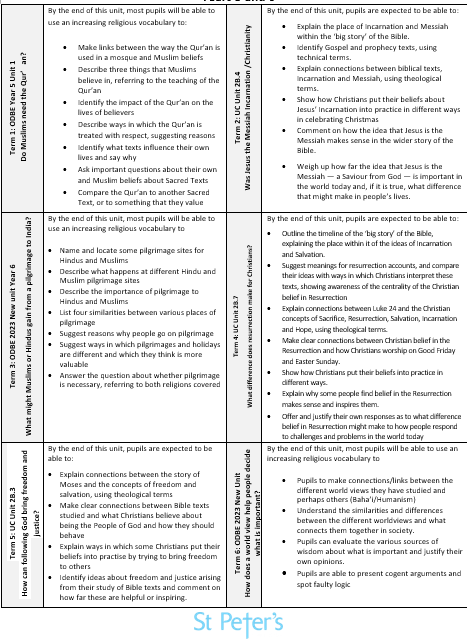 |
Impact
By the end of KS2 pupils have a very good knowledge and understanding of all Abrahamic religions (Christianity, Judaism and Hinduism) and at least one Dharmic tradition, (Buddism, Sikhism) and some knowledge of non-religious perspectives and Humanism.Pupils have deepened their knowledge in RE over time which means pupils can:
- learn both substantive content and concepts and ways of knowing
- select knowledge to make sense of a complex and diverse world
- build awareness of the assumptions that they bring to discussions concerning religious and non-religious traditions.
Their biblical literacy is amazing, the quality of teaching and learning in RE is very good.
SIAMS, 2018
The provision for pupils’ personal development is impressive. The school is tenacious in its ambition to equip all pupils with the skills and knowledge needed for life in modern Britain.
Ofsted, 2025
Pupils seem to enjoy RE. Y5/6 pupils were very articulate about what they are learning and are able to talk about what religion is and the ways that religions are different. They made links between religion and culture but also know that not everyone follows a religion. KS1 and Reception were knowledgeable about the Easter story.
RE ODBE Advisor report, 2025
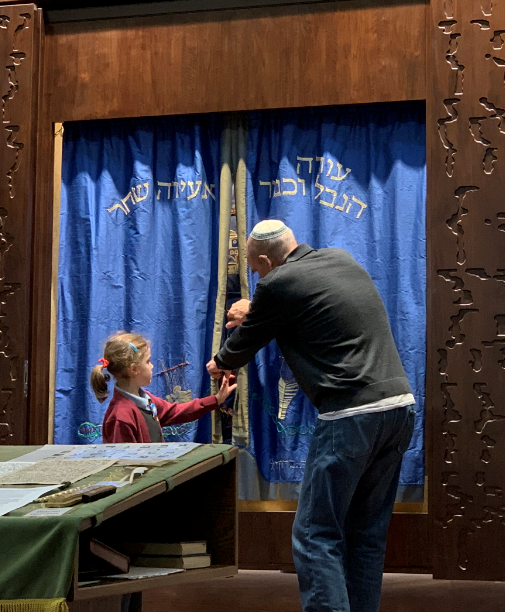 |
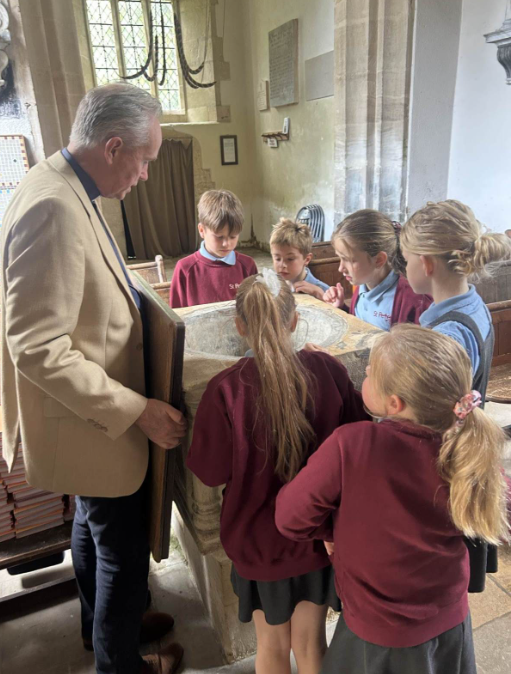 |
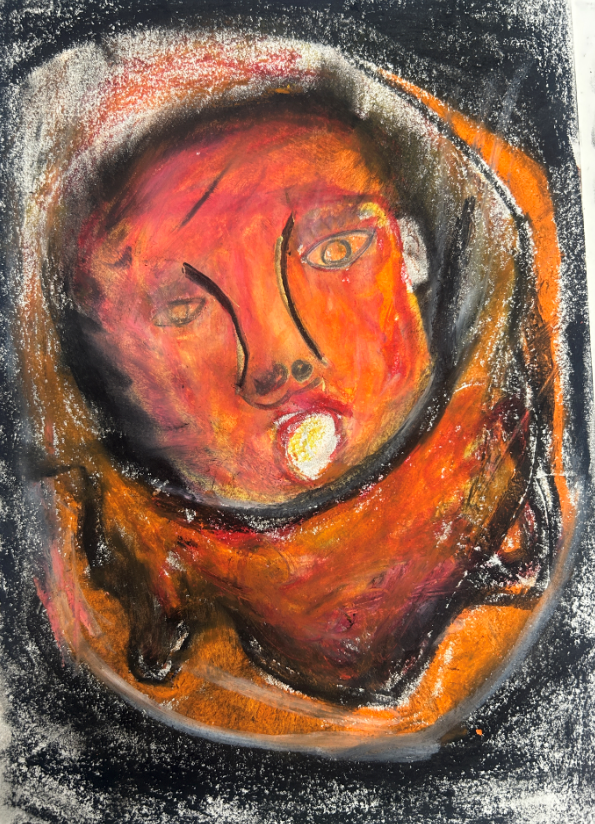 |
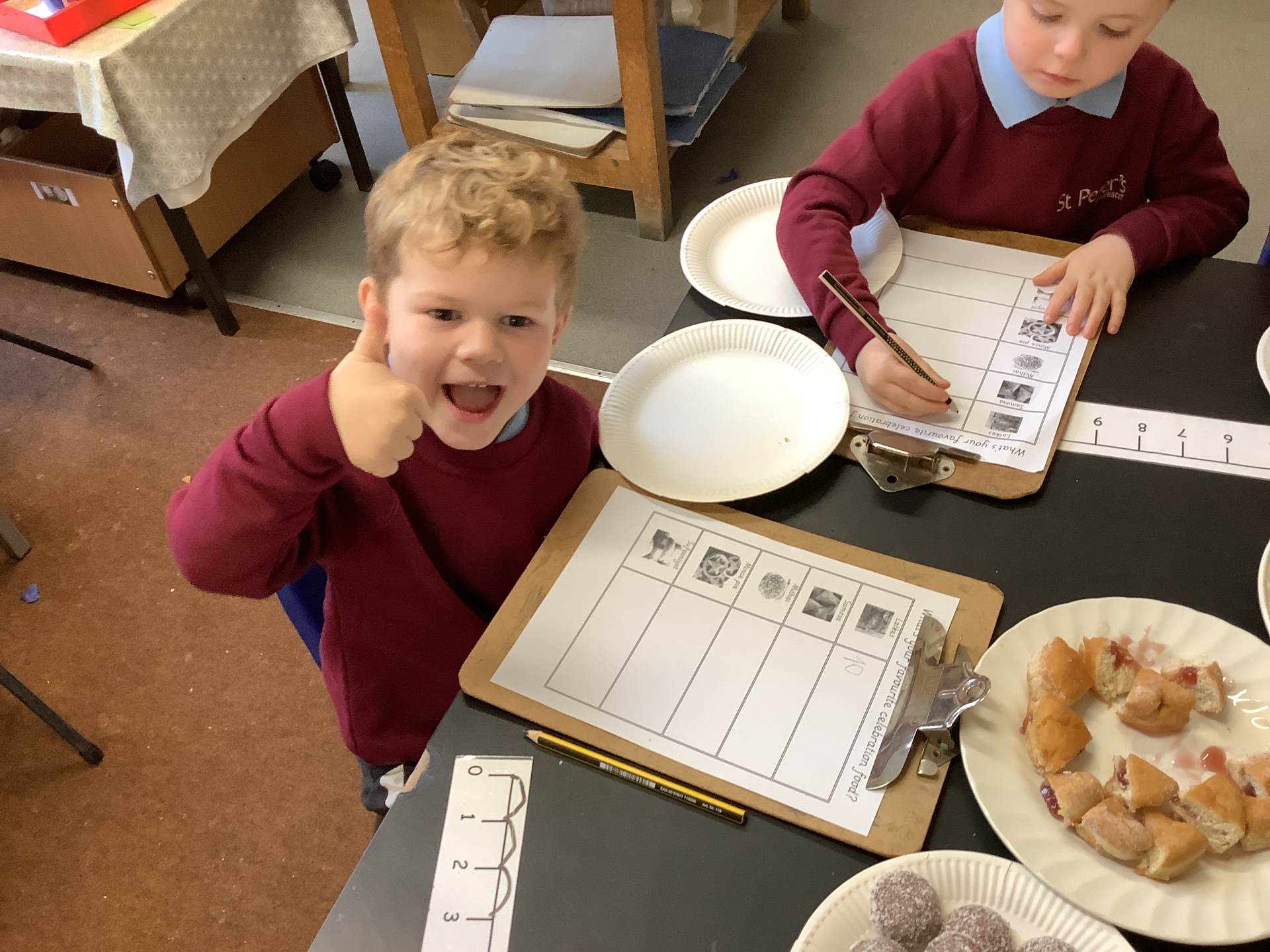 |
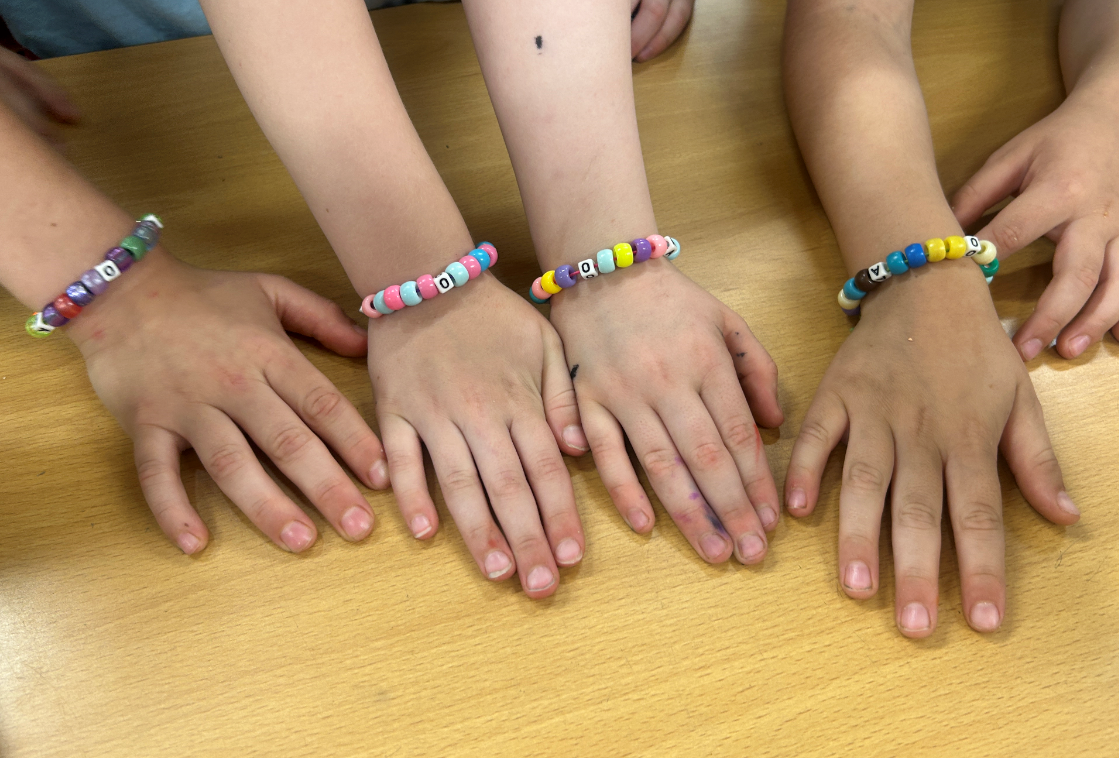 |
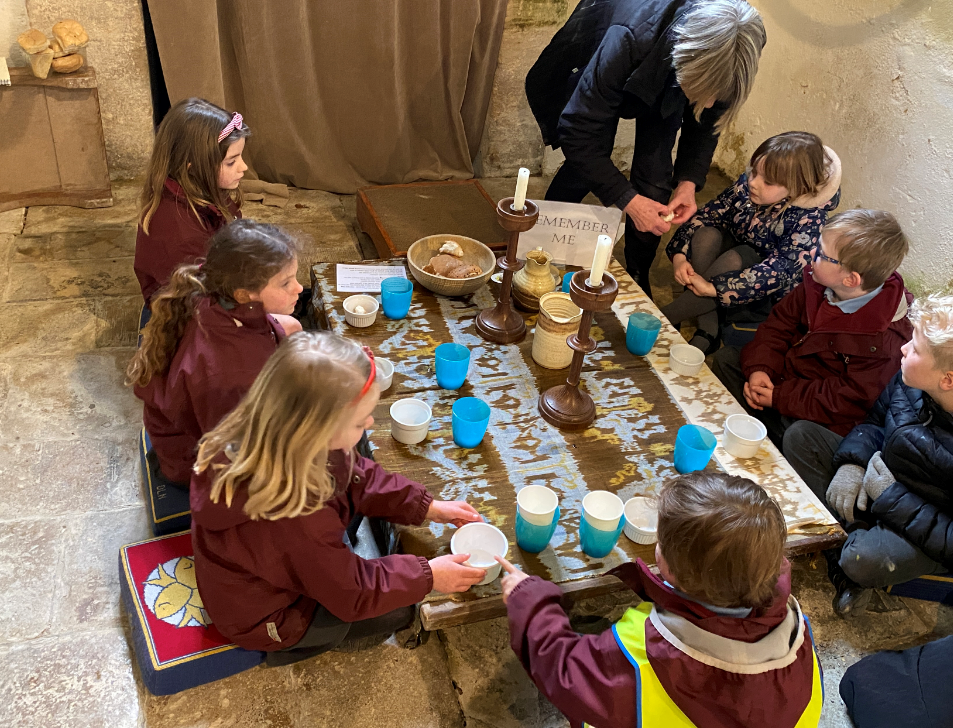 |
After learning about Baptism and Christianity at school, PUPIL said he would like baptised and today we had a really relaxed and beautiful ceremony
A parent, 2024
Thank you for teaching me. My favourite bit was finding out all about Jesus.
A pupil, 2025






